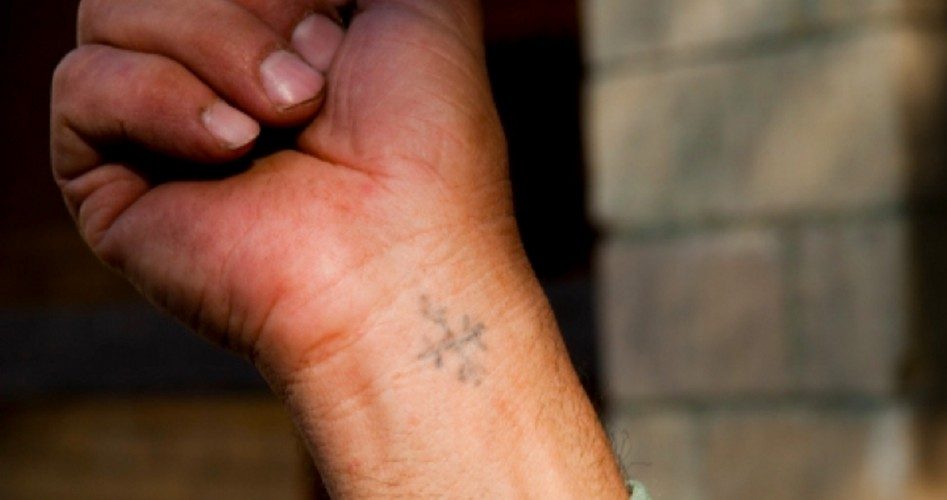
An Egyptian human rights organization said that an Egyptian Coptic Christian who died while being detained by Libyan Islamists was tortured to death. Ezzat Hakim Attallah was one of over 50 Coptic Christians detained by Libyan authorities last month and charged with proselytizing. Naguib Guebrayel, a Coptic Christian attorney who heads a group called Egyptian Union for Human Rights, told AFP News that Attallah “died after being tortured with other detainees.”
Fox News reported that Atallah, who was among several dozen Egyptian Christians detained since February 25 in Benghazi, had been hospitalized March 6 before he was brought back to his cell and later died, according to family members.
Attallah’s brother, Effat Hakim Atallah, said that Attallah had originally been arrested February 13 while working at a mobile phone shop in a Benghazi marketplace. Other Egyptian merchants from surrounding shop stalls were arrested as well, supposedly because they had displayed Christian symbols in their businesses.
Fox News reported that Atallah’s wife visited him three days after his arrest “and found him in a state of severe fatigue and with bruises and cuts, according to Effat Hakim Atallah.” At that time, said the brother, Libyan officials had already subjected him to both physical and psychological torture. “According to Atallah’s wife,” Fox continued, “he was arrested because his telephone number was found on a telephone of another suspect who had been arrested for possession of Christian books.”
While Attalah’s family and attorney insist his death was the result of torture, the Egyptian Foreign Ministry said he also suffered from diabetes and a heart ailment, which most likely contributed to his death. Watchdog groups noted that Egyptian Christians who have emigrated to Libya for employment have been subjected to arrest and brutality from Islamist groups over the past several months, and that the Egyptian government has remained largely silent regarding their plight.
The death of the Coptic Christian sparked a protest outside the Libyan Embassy in Cairo, with protesters demanding that the Egyptian government do more to stop the oppressive treatment of Egyptian citizens in Libya. Hundreds of thousands of Egyptians are living and working in Libya, according to one report.
“Egyptians should not be arrested arbitrarily just because they are Christian,” said Sameh Saad, an Egyptian attorney working for the release of the detained Christians. “Atallah had a business there, and his wife and children. Why would he jeopardize his life?”
Human rights groups report that persecution of Christians has been on the rise in Libya over the past several months. According to Fox News “several Catholic religious orders that have operated within Libya for decades, serving at hospitals and in elder care, have been driven from the country in the wake of its revolution. In January, the Franciscan Sisters of the Infant Jesus left Barce and the Ursuline Sisters of the Sacred Heart of Jesus left Beida, both citing pressure from Islamists. In October, nuns from the Convent of the Holy Family of Spoleto in Derna were forced to leave Libya amid continuous threats from Islamic extremists.”
However, the most extreme oppression thus far seems to be toward Coptic Christians from neighboring Egypt. Last month four foreign individuals — from Egypt, South Africa, South Korea, and Sweden — were arrested and charged with printing and distributing Christian literature and Bibles. Of the four, according to Morning Star News, which monitors Christian persecution around the world, only the Egyptian, identified as Sherif Ramses, was detained and will likely stand trial for proselytizing.
According to Morning Star News, “When Ramses was arrested, he allegedly had 30,000 Bibles in storage, a figure that Libyan police inflated to 45,000 in published statements, sources said. Ramses ran a small printing service in Benghazi and a bookstore that sold both Christian and secular books.” According to the news site, witnesses said Ramses had been been tortured following his arrest, and was severely bruised.
Jewish news site Algemeiner.com reported that in late February Libyan Islamists arrested and tortured nearly 50 Coptic Christians in Benghazi, shaving their heads and using acid to remove religious crosses that had been tattooed on their wrists (see photo for an example of a Coptic cross tatoo). The Christians were later released and deported back to Egypt.
In late February gunmen attacked an Egyptian Coptic church in Benghazi, assaulting two priests, reported the Libyan foreign ministry, which condemned the assault. And last December two Egyptians were killed in a bombing at a Coptic church in the Libyan town of Dafniya.
AFP noted that Coptic Christians make up ten percent of Egypt’s population of 83 million and is the largest Christian group in the Middle East. Before the 2011 ouster and death of Libya dictator Moamer Kadhafi as many as 100,000 Christians lived in the country, but Coptic church officials estimate that number has dwindled to only a few thousand.
Photo: Coptic cross tatoo


